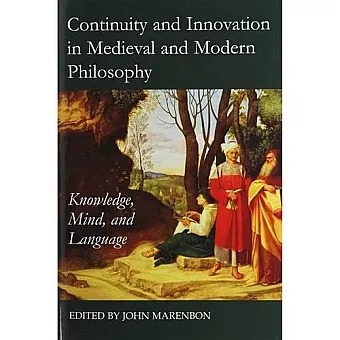Continuity and Innovation in Medieval and Modern Philosophy
Knowledge, Mind and Language
Format:Hardback
Publisher:Oxford University Press
Published:22nd Aug '13
Currently unavailable, and unfortunately no date known when it will be back

The usual division of philosophy into 'medieval' and 'modern' may obscure very real continuities in the ideas of thinkers in the western and Islamic traditions. This book examines three areas where these continuities are particularly clear: knowledge, the mind, and language. Dominik Perler shows how, when Descartes attacked faculty psychology, he was indeed separating himself from one strand of the medieval tradition, represented by Suárez, but at the same time he was closely following another strand, found in Ockham. Martin Lenz shows how Locke's philosophy of language fits into a long medieval tradition of thought based on Aristotle's On Interpretation. Locke introduced the requirement that a word be linked to an idea in the speaker's mind, but Lenz argues that this does not mean that Locke was proposing that we each have a private language. Robert Pasnau looks at an area where the continuity between the attitudes of, for instance, Aquinas and Locke contrasts with views generally held in Islam and among Jewish thinkers. Whereas Latin thinkers rarely defended the idea that some knowledge should be kept for the elite, this view was held by al-Ghazâlî, Averroes and Maimonides - and it may, he argues, be a defensible philosophical position today. The chapters are based on papers given at a symposium at the British Academy and are presented here with responses by Andrew Pyle, Michael Ayers and John Hawthorne.
- Runner-up for Katharine Briggs Folklore Award 2004
ISBN: 9780197265499
Dimensions: 242mm x 164mm x 20mm
Weight: 444g
150 pages